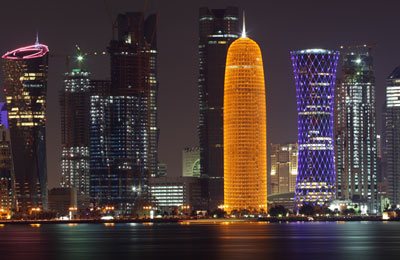
Qatar most competitive in Mena; Switzerland tops
Geneva , September 5, 2012
Qatar is the most competitive economy in the Middle East and North Africa region, according to The Global Competitiveness Report 2012-2013, released today by the World Economic Forum.
Switzerland, for the fourth consecutive year, topped the overall global rankings, Singapore remained in second position and Finland in third position, overtaking Sweden (4th).
Northern and Western European countries dominated the top 10 with the Netherlands (5th), Germany (6th) and United Kingdom (8th). The United States (7th), Hong Kong (9th) and Japan (10th) complete the ranking of the top 10 most competitive economies.
In the Mena region, Qatar stood at 11th in the global ranking, while Saudi Arabia remained among the top 20 (18th). The UAE (24th) improved its performance, while Kuwait (37th) slightly declined. Morocco (70th) and Jordan (63rd) improved slightly.
Despite growing its overall competitiveness score, the US continuesd its decline for the fourth year in a row, falling two more places to seventh position.
In addition to the burgeoning macroeconomic vulnerabilities, some aspects of the country’s institutional environment continue to raise concern among business leaders, particularly the low public trust in politicians and a perceived lack of government efficiency. On a more positive note, the country still remains a global innovation powerhouse and its markets work efficiently, the report said.
The report indicates that Switzerland and countries in Northern Europe have been consolidating their strong competitiveness positions since the financial and economic downturn in 2008. On the other hand, countries in Southern Europe, i.e. Portugal (49th), Spain (36th), Italy (42nd) and particularly Greece (96th) continue to suffer from competitiveness weaknesses in terms of macroeconomic imbalances, poor access to financing, rigid labour markets and an innovation deficit.
The large emerging market economies (BRICS) display different performances. Despite a slight decline in the rankings of three places, the People’s Republic of China (29th) continued to lead the group. Of the others, only Brazil (48th) moved up this year, with South Africa (52nd), India (59th) and Russia (67th) experiencing small declines in rankings.
Behind Singapore, several Asian economies are performing strongly, with Hong Kong SAR (9th), Japan (10th), Taiwan, China (13th) and the Republic of Korea (19th) all in the top 20.
In Latin America, Chile (33rd) retains the lead and a number of countries see their competitiveness improve, such as Panama (40th), Brazil (48th), Mexico (53rd) and Peru (61st). Read more highlights of the report.
In sub-Saharan Africa, South Africa (52nd) and Mauritius (54th) feature in the top half of the rankings. However, most countries in the region continue to require efforts across the board to improve their competitiveness.
“Persisting divides in competitiveness across regions and within regions, particularly in Europe, are at the origin of the turbulence we are experiencing today, and this is jeopardizing our future prosperity,” said Klaus Schwab, founder and executive chairman, World Economic Forum. “We urge governments to act decisively by adopting long-term measures to enhance competitiveness and return the world to a sustainable growth path.”
Xavier Sala-i-Martin, professor of economics, Columbia University, USA, said: “The Global Competitiveness Index provides a window on the long-term trends that are shaping the competitiveness of the world’s economies. In this light, we believe it offers useful insight into the key areas where countries must act if they are to optimise the productivity that will determine their economic future.” -TradeArabia News Service







